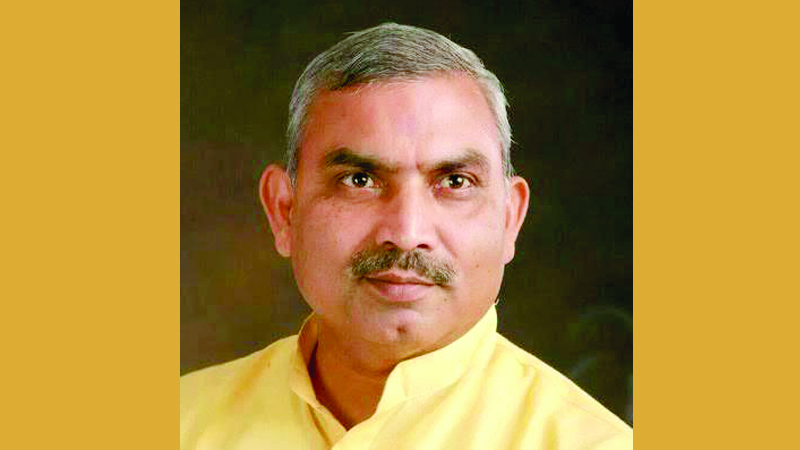Under Prime Minister Shri Narendra Modi’s leadership, India is hosting a number of events during its G-20 presidency. G-20 programmes have taken the form of festivals in India with the participation of society, rather than simply diplomatic engagement of certain representatives. Prime Minister Shri Narendra Modi’s working style is unique in that he plans programmes for the entire society by linking government schemes to the society. The goal declared by Shri Modi “One Earth, One Family, One Future” has become a means of connecting the world. This is the embodiment of Indian culture’s ‘Vasudhaiva Kutumbakam’ concept. Through the G-20, India wishes to present the development model (Development, Diversity, Democracy) to the world.
Speaking among the overseas Indians on the occasion of ‘Pravasi Bharatiya Divas’ which was held in Indore this year, Hon’ble Prime Minister Shri Narendra Modi said that we all are proud that India is the ‘Mother of Democracy’. We used to say that India is the largest democratic country in the world when praising its democracy. Whereas there was a global democratic crisis, democracy in our neighbouring Pakistan was also trampled under the army’s boots, we proved to be a successful democracy. Prime Minister Shri Modi has referred to India as the “Mother of Democracy,” rather than just the largest democracy, because democracy has been practised in India since the Vedic period.
There was a deliberate attempt to make us forget about the’self’ during the pre-independence period. We were taught that India had nothing of its own and that everything came from the Britishers. Mathematics, science, art, literature, development concepts, and so on have all been passed down to us from the Britishers.
The goal declared by Shri Modi “one earth, one family, one future” has become a means of connecting the world. This is the embodiment of the concept of ‘Vasudhaiva Kutumbakam’ of Indian culture
Even the democratic system is also given to us by the Britishers. A large section of India began to believe this after getting educated by the well-planned Macaulay education system.
The Republic of Athens was taught to us as the world’s first democracy. After being liberated from dictatorship, the state of Athens became the first republic; its history dates back 2000 years. The spirit of democracy had developed in India since the Vedas, thousands of years before the Republic of Athens. In the Rigveda, the word “republic” appears 40 times and 9 times in the Atharvaveda. The Rigveda contains examples of the king ruling in consultation with his allies. “Samiti” was the name given to the group formed by the king and his associates. The presence of the king in the meetings of the committee was mandatory as in “Raja na satya: samitriyan” (The king who does not come to the meeting of the committee is not a true king).
There is a description of three types of gatherings in the Vedas. In which 1. Vidyarya Sabha (related to education) 2. Dharmarya Sabha (judicial related) 3. Evidence of governance is found through Rajarya Sabha (related to governance administration). The meeting, like the committee, served as a vehicle for governance. Many examples of this can be found in the literature. It has been said that the meeting is not a meeting where there are no good people. Good people speak about justice rather than attachment and hatred. “Na sa sabha yattham na santi santo” (“न सा सभा यत्थम न सन्ति संतो”).
Janasadan is mentioned in Shanti Parva of Mahabharata. In Shanti Parv, Bhishma Pitamah explained the importance of republic to Yudhishthira and said, “Republic is the medium of direct association with the people”. Shakya, Kolio, Licchavi, Vajji, Pippalvan, Allapvan are all examples of democratic republic in Buddhist period.
Dr. Sarvepalli Radhakrishnan, speaking in the Constituent Assembly, mentioned the king’s dialogue with vanikos (merchants) who travelled from north to south 2000 years ago. “Who is your king?” the king inquires. The merchant then responded that some of us are ruled by the council, while others are ruled by the king. The description of democratic governance can be found in the works of all Indian scholars such as Patanjali, Kautilya, and others. Foreign scholars such as Megasthenes, Hiuen Tsang, and others have written about India’s republican system.
The general society in India is naturally filled with the spirit of democracy, which is the key to democracy’s success. As a result of the king’s dictatorial trend, many
The secret of the success of democracy in India is that the general society here is naturally filled with the spirit of democracy
countries around the world established democratic systems. On the other hand, democracy in India was born with a positive attitude. The in-depth study of the human mind seen in Indians has not been seen elsewhere.
The reason for this is the spirituality derived from the rich tradition of India. Mantra of Rigveda: Sangachchhvam Samvadhvam. Sam Woh Manansi Jantam. Samano Mantra: Samiti: Samani (संगच्छध्वं संवदध्वं। सं वो मनांसि जानताम्। समानो मन्त्रः समितिः समानी).
Means: Let us walk in one direction, speak the same, know everyone’s attitude, let our Samiti be same, everyone’s Mantra (goal) should be same.
This positive sense of democracy originated in India in ancient times and is still present as values in the mind of Indian people; the architect of the Indian constitution confirmed this feeling by granting equal voting rights to all during the constitution’s drafting. The Prime Minister is revealing this historical truth to the world by calling India the ‘Mother of Democracy’. And the G-20 will serve as a platform to highlight these aspects of Indian society. By realising the ‘Panch Pran’ of Prime Minister Modi, India will also be freed from mental slavery.
Writer is BJP National Jt. General Secretary (Organization)


